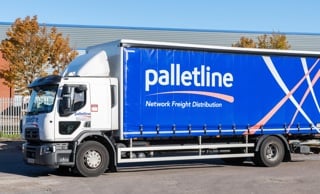By Denise Beedell, senior policy manager at Logistics UK
Fleet managers have been kept on their toes throughout 2023 by several regulatory changes affecting the sector.
From delays to the UK’s transport decarbonisation agenda to changes to the Direct Vision Standard (DVS) criteria, the past 12 months have been a time of challenge and change for the road transport industry.
But despite the turbulence, road transport operators have made significant progress towards decarbonisation, while implementing solutions to maximise fleet efficiency and ensuring compliance with urban restrictions and road safety schemes.
Reviewing the industry’s net zero progress over the past 12 months and looking ahead to what is in store for 2024 is always worthwhile.
With the UK facing a deadline of 2050 to achieve a net zero emission economy, logistics businesses are already working hard to decarbonise their operations and are making significant strides in this area.
However, Government decisions over the past 12 months on key industry measures have hampered business decisions, such as its move to delay the ban on the sale of new diesel and petrol cars and vans from 2030 to 2035.
Operators’ biggest challenge is managing the costs of decarbonisation, particularly if energy supply increases at depots are required.
Socialisation of costs for upgrading local energy grid networks through consumer bills from April 2023 was welcome, but costs associated with upgrading energy supply at depots remain high.
And while the cost differential is narrowing for zero emission vans, compared to diesel vans, it is expected to remain higher for heavier vehicles for some time.
In order to invest, businesses must have certainty, which Government can provide by setting and implementing a clear plan to increase the pace of installing adequate charging infrastructure and financial incentives to make the switch to zero emission technologies affordable for businesses.
As of July 2023, there were 44,020 public electric vehicle charge points available in the UK; an overall percentage increase of 19% since January 2023.
While this may seem significant, many are unavailable for use by vans. If only 7,000 new installations take place every six months, by 2030 the UK will fall short by 50% of the 300,000 public chargepoints set by Department for Transport.
While industry investment in electric vans continues on a positive trajectory, road transport operators require faster progress in the development of alternatively fuelled heavy commercial vehicles.
In October 2023, the government announced the winners of the Zero Emission HGV and Infrastructure Demonstrator Programme, and also published a call for evidence to inform and support the development of the zero emission HGV and coach infrastructure strategy, ahead of publication in 2024.
In the meantime, Low Carbon Fuels (LCFs), such as hydrotreated vegetable oil (HVO) and biomethane, offer immediate carbon emission reductions of up to 80% without the need for large vehicle modifications; we have been seeing many logistics businesses invest in and deploy this technology over the past 12 months.
Right now, LCFs come at a high cost and lack the necessary supporting infrastructure, such as refuelling stations; there are also questions regarding the government’s long-term commitment to LCFs, following its response to the Transport Committee’s Fuelling the Future report. The publication of Government’s Low Carbon Fuels strategy is now significantly late.
With LCFs able to produce immediate carbon emission reductions, the lack of strategy and clarity for operators is creating wasted opportunities for vital reductions in emissions; it is essential that this is addressed in the coming 12 months.
In October, the Government responded to the Driver Licence Flexibility for Alternatively Fuelled Vehicles (AFVs) consultation considering the current Category B Derogation allowing AFVs up to 4,250 kgs to be driven on a standard driving licence.
Government’s response heeded much of what the industry has been calling for, but the proposed changes will exclude LCFs from the flexibility. These proposals are expected to be made law within the current parliament.
This year the Government launched the Freight Energy Forum, and Logistics UK joined representatives from the supply chain, energy and finance sectors to inform government understanding of the challenges facing our sector.
Road transport operators have made significant progress towards decarbonisation in 2023; over the next 12 months and beyond, recharging and refuelling infrastructure installation must happen faster to encourage the transition to zero-tailpipe emission vehicle fleets of the future, as well as further Government investment in net zero programmes all while supporting safe and efficient operations.




















Login to comment
Comments
No comments have been made yet.